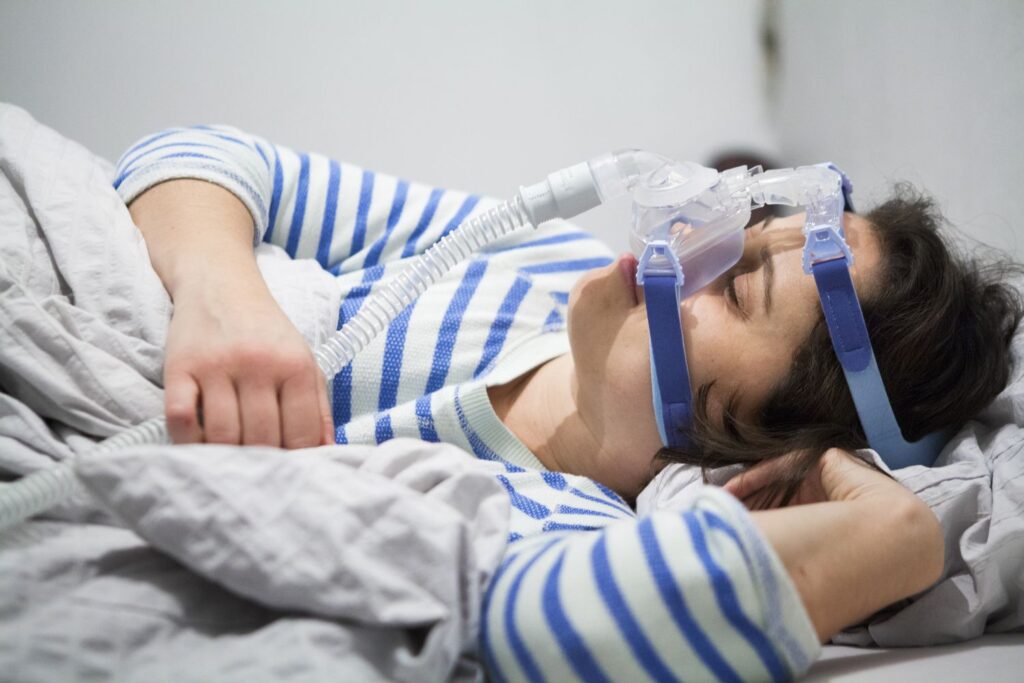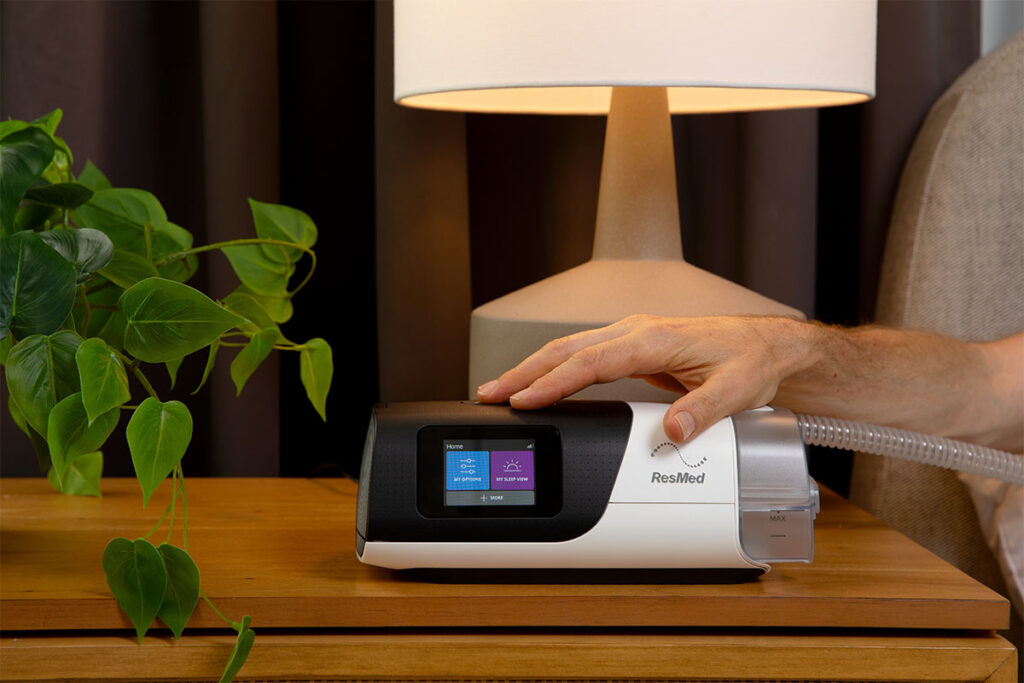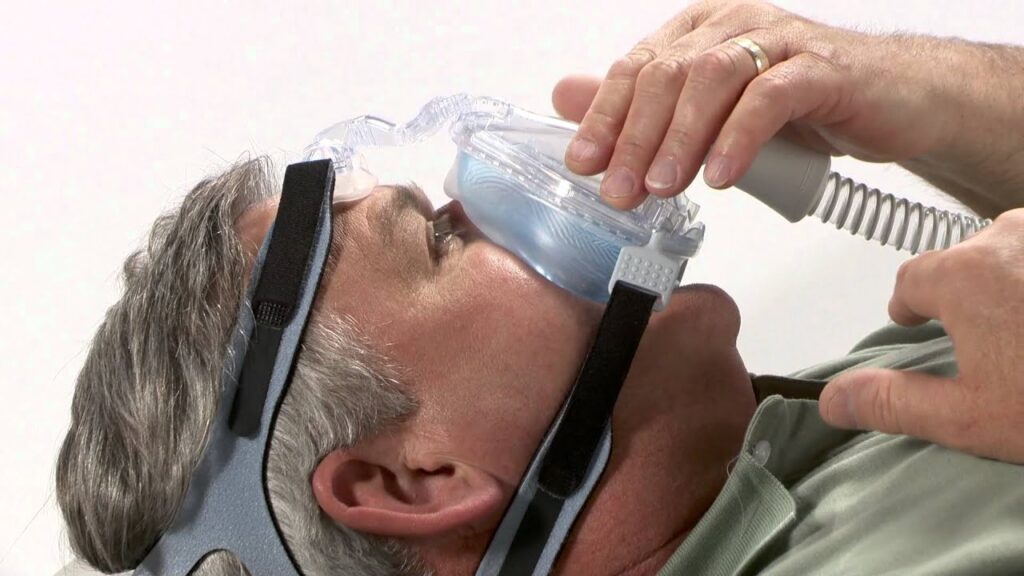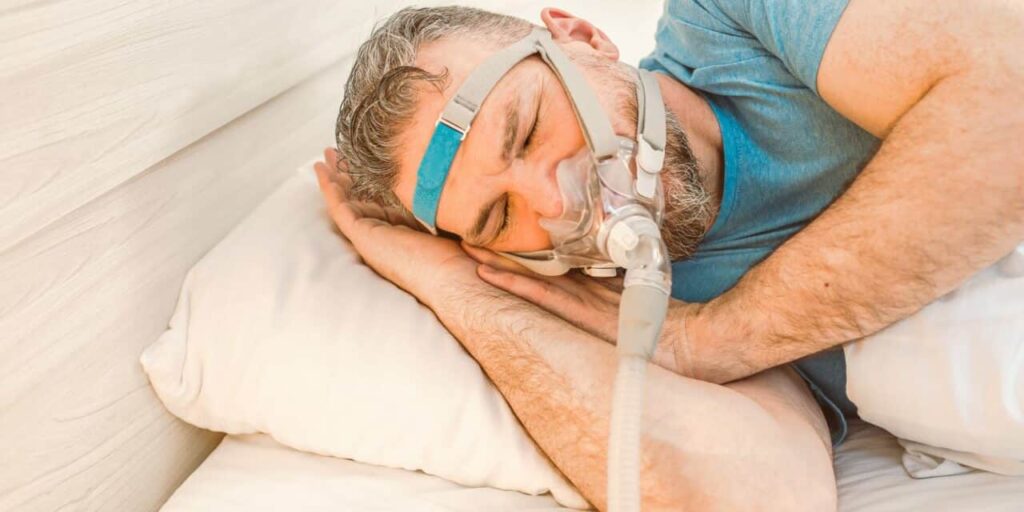Living with any kind of respiratory condition can be a challenging experience. Difficulty in breathing not only affects our physical health but also takes a toll on our sleep quality and overall well-being. However, with the help of continuous positive airway pressure (CPAP) machines, individuals suffering from conditions such as sleep apnea can find relief and regain control of their respiratory wellness.
Understanding the Role of CPAP Machines in Respiratory Wellness
Sleep apnea is a disorder characterized by interrupted breathing during sleep. This can lead to daytime drowsiness, decreased cognitive function, and even cardiovascular problems if left untreated. CPAP machines are designed to combat sleep apnea by delivering a constant stream of pressurized air to keep the airways open and ensure uninterrupted breathing throughout the night.
When it comes to buy cpap machine online need understanding the science behind CPAP machines, it’s important to delve into the concept of positive airway pressure. CPAP machines work on this principle, where a mask worn over the nose or mouth, or both, is connected to the machine. The machine then delivers a steady flow of air at a prescribed pressure. This pressure acts as a splint, preventing the collapse of the airways during sleep and allowing the individual to breathe effortlessly.
The importance of CPAP machines for sleep apnea patients cannot be overstated. Consistent use of these machines has proven to be highly beneficial. By ensuring uninterrupted breathing during sleep, CPAP machines improve oxygenation, reduce daytime sleepiness, and enhance overall sleep quality. Sleep apnea patients who use CPAP therapy often report feeling more refreshed and alert during the day.

Furthermore, CPAP therapy has been associated with a decreased risk of cardiovascular issues. Sleep apnea is known to contribute to high blood pressure and heart disease. By effectively treating sleep apnea with CPAP machines, the risk of developing these cardiovascular problems is significantly reduced. This is because CPAP therapy helps to maintain a healthy oxygen level in the blood, preventing strain on the heart and blood vessels.
It is worth noting that CPAP machines come in various forms to cater to different needs. Some machines offer additional features such as humidification, which helps to prevent dryness and discomfort in the airways. Others are designed to be portable and travel-friendly, allowing individuals to maintain their sleep apnea treatment even while on the go.
In conclusion, CPAP machines play a crucial role in respiratory wellness for sleep apnea patients. By delivering a constant stream of pressurized air, these machines ensure uninterrupted breathing during sleep, leading to improved oxygenation, reduced daytime sleepiness, and enhanced overall sleep quality. Additionally, CPAP therapy has been shown to decrease the risk of cardiovascular issues associated with sleep apnea. With the advancements in technology, CPAP machines continue to evolve, providing sleep apnea patients with better treatment options and improved comfort.
Choosing the Right CPAP Machine for You
Selecting the right CPAP machine is crucial for long-term respiratory wellness. It is important to carefully consider several factors when making your decision.
Factors to Consider When Buying a CPAP Machine
When it comes to buying a CPAP machine, there are several important factors to take into account:
Your specific sleep apnea diagnosis and severity:
It is essential to consult with your healthcare provider to determine the type and severity of your sleep apnea. This information will help guide you in choosing the most appropriate CPAP machine.
Portability and ease of use:
If you frequently travel or lead an active lifestyle, you may want to consider a CPAP machine that is lightweight and compact for easy transportation. Additionally, look for user-friendly features that make setup and maintenance hassle-free.
Noise level:
Some CPAP machines produce more noise than others. If you are a light sleeper or share a bedroom with a partner, you may want to opt for a machine with quieter operation.
Data recording capabilities for monitoring progress:
Many modern CPAP machines come equipped with data recording capabilities, allowing you and your healthcare provider to monitor your progress over time. This can be beneficial in fine-tuning your treatment and ensuring its effectiveness.
Comfort features, such as mask options and humidification:
Comfort is key when using a CPAP machine. Look for models that offer a variety of mask options to find the one that fits you best. Additionally, consider machines with built-in humidification features to prevent dryness and enhance comfort during therapy.
Coverage by insurance or other financial considerations:
CPAP machines can be a significant investment. Before making a purchase, check with your insurance provider to determine what coverage is available. Additionally, consider any financial assistance programs or payment plans that may be available to help make the cost more manageable.
Different Types of CPAP Machines
CPAP machines come in various forms, each with its own unique features. Understanding the different types can help you make an informed decision:
Traditional CPAP machines:
These machines provide a fixed pressure throughout the night. They are a reliable option for individuals who require a consistent pressure setting.
Auto-adjusting CPAP machines:
Also known as APAP machines, these devices automatically adjust the pressure based on your breathing patterns. This dynamic pressure adjustment optimizes comfort and effectiveness, ensuring that you receive the right amount of pressure at all times.
Bi-level or BiPAP machines:
These machines offer two different pressures, one for inhalation and one for exhalation. Bi-level machines are particularly beneficial for individuals with certain medical conditions, such as respiratory muscle weakness or chronic obstructive pulmonary disease (COPD). The ability to deliver different pressures during inhalation and exhalation provides enhanced comfort and support.
By considering these factors and understanding the different types of CPAP machines available, you can make an informed decision that meets your specific needs and ensures effective treatment for your sleep apnea.

Using Your CPAP Machine Effectively
Once you have chosen the right CPAP machine, it is essential to ensure proper utilization for optimal respiratory wellness. Follow these steps:
Setting Up Your CPAP Machine
Read the instruction manual and consult with your healthcare provider to correctly set up your CPAP machine. This includes adjusting the pressure settings, fitting the mask properly, and connecting all necessary components. Regularly recalibrate and check for leaks to maintain optimal performance.
When setting up your CPAP machine, it is important to find a comfortable mask that fits securely on your face. There are various types of masks available, such as nasal masks, full face masks, and nasal pillow masks, so you can choose the one that suits your needs and preferences. Take the time to adjust the straps and ensure a proper seal to prevent air leaks.
Additionally, understanding the pressure settings of your CPAP machine is crucial. Your healthcare provider will help determine the appropriate pressure level for your specific condition. It is important to follow their guidance and make any necessary adjustments as recommended.
Maintaining and Cleaning Your CPAP Machine
Regular maintenance and cleaning of your CPAP machine are essential for hygiene and longevity. Follow these guidelines:
- Clean the mask, tubing, and humidifier chamber with mild soap and water daily. This will help remove any dirt, oils, or bacteria that may have accumulated.
- After cleaning, rinse all components thoroughly to ensure no soap residue remains. Soap residue can cause skin irritation or affect the performance of the machine.
- Allow all parts to air dry completely before reassembling. Avoid using a towel or cloth to dry the components, as this may introduce lint or other particles.
- Replace disposable filters and wash reusable filters regularly as per manufacturer instructions. Filters help prevent dust and allergens from entering your airway.
- Empty and refill the water chamber with distilled water to prevent mineral buildup and potential mold growth. Tap water may contain minerals that can accumulate over time and affect the functioning of the humidifier.
- Regularly inspect the equipment for any signs of damage and consult with your provider for repairs or replacement. Damaged components may compromise the effectiveness of the CPAP machine.
It is important to establish a routine for cleaning and maintaining your CPAP machine. By doing so, you can ensure that you are breathing clean, filtered air and prolong the lifespan of your equipment.
Remember to consult with your healthcare provider if you have any questions or concerns about using your CPAP machine effectively. They can provide personalized guidance and support to help you achieve the best results for your respiratory health.

Overcoming Common CPAP Machine Challenges
Starting CPAP therapy may come with some initial challenges. However, with perseverance and the right approach, these obstacles can be overcome.
Dealing with Initial Discomfort
Wearing a mask and adjusting to the sensation of pressurized airflow may take time. Gradually increase usage and try different mask styles and sizes until you find the most comfortable fit. Consulting with a respiratory therapist can provide valuable guidance and support during this adjustment period.
During the initial stages of using a CPAP machine, it is common to experience some discomfort. This can include feelings of claustrophobia, difficulty falling asleep, or a sense of irritation caused by the mask. It is important to remember that these challenges are temporary and can be overcome with patience and persistence.
One effective strategy to address initial discomfort is to gradually increase the usage of the CPAP machine. Start by using it for short periods of time during the day, gradually increasing the duration until you can comfortably use it throughout the night. This gradual approach allows your body to adjust to the sensation of pressurized airflow and helps alleviate any initial discomfort.
Another helpful tip is to try different mask styles and sizes. CPAP masks come in various designs, such as nasal masks, full-face masks, or nasal pillows. Each individual has unique facial features and preferences, so it may take some trial and error to find the most comfortable fit. Don’t hesitate to consult with a respiratory therapist who can provide valuable guidance and support during this adjustment period.
Addressing Common CPAP Machine Problems
Some individuals may experience issues such as dry mouth, nasal congestion, or skin irritation while using a CPAP machine. Fortunately, there are solutions available to alleviate these problems:
- Use a CPAP machine with a built-in humidifier to add moisture to the air. Dry mouth is a common side effect of CPAP therapy, and a humidifier can help prevent this discomfort. The added moisture can also help alleviate nasal congestion and dryness.
- Try saline nasal sprays or nasal irrigation techniques to alleviate congestion. Nasal congestion can be a result of the pressurized airflow, and using saline sprays or irrigation methods can help clear the nasal passages, making breathing easier and more comfortable.
- Select hypoallergenic masks or apply specialized skin protectants to minimize irritation. Skin irritation can occur due to the constant contact between the mask and the face. Choosing hypoallergenic masks made from gentle materials can help reduce the risk of irritation. Additionally, applying skin protectants, such as silicone-based creams or gels, can create a barrier between the mask and the skin, preventing irritation and discomfort.
It is important to remember that everyone’s experience with CPAP therapy is unique, and what works for one person may not work for another. If you encounter any challenges or problems while using a CPAP machine, don’t hesitate to reach out to your healthcare provider or respiratory therapist for personalized advice and support. They can help tailor a solution that addresses your specific needs and ensures a comfortable and effective CPAP therapy experience.
The Impact of CPAP Machines on Quality of Life
The successful integration of CPAP therapy into your life can vastly improve your overall well-being by addressing sleep apnea and enhancing your respiratory wellness.
Improvements in Sleep Quality
With CPAP machines ensuring uninterrupted breathing, sleep quality noticeably improves. By achieving restful sleep, you experience enhanced energy levels, improved mood, and increased mental acuity throughout the day.
Long-Term Health Benefits of Using CPAP Machines
Using CPAP machines consistently can have significant long-term health benefits. Not only can it reduce the risk of cardiovascular complications, but it can also contribute to weight management and lower the incidence of related respiratory disorders such as asthma or chronic obstructive pulmonary disease.
In conclusion, CPAP machines play a crucial role in optimizing respiratory wellness for individuals living with sleep apnea. By understanding their functionality, selecting the right device, utilizing it effectively, and addressing any challenges along the way, you can experience a breath of fresh air in your journey towards better respiratory health and overall well-being.
Related: Exploring the Latest Advancements in CPAP Machines and Respiratory Services


